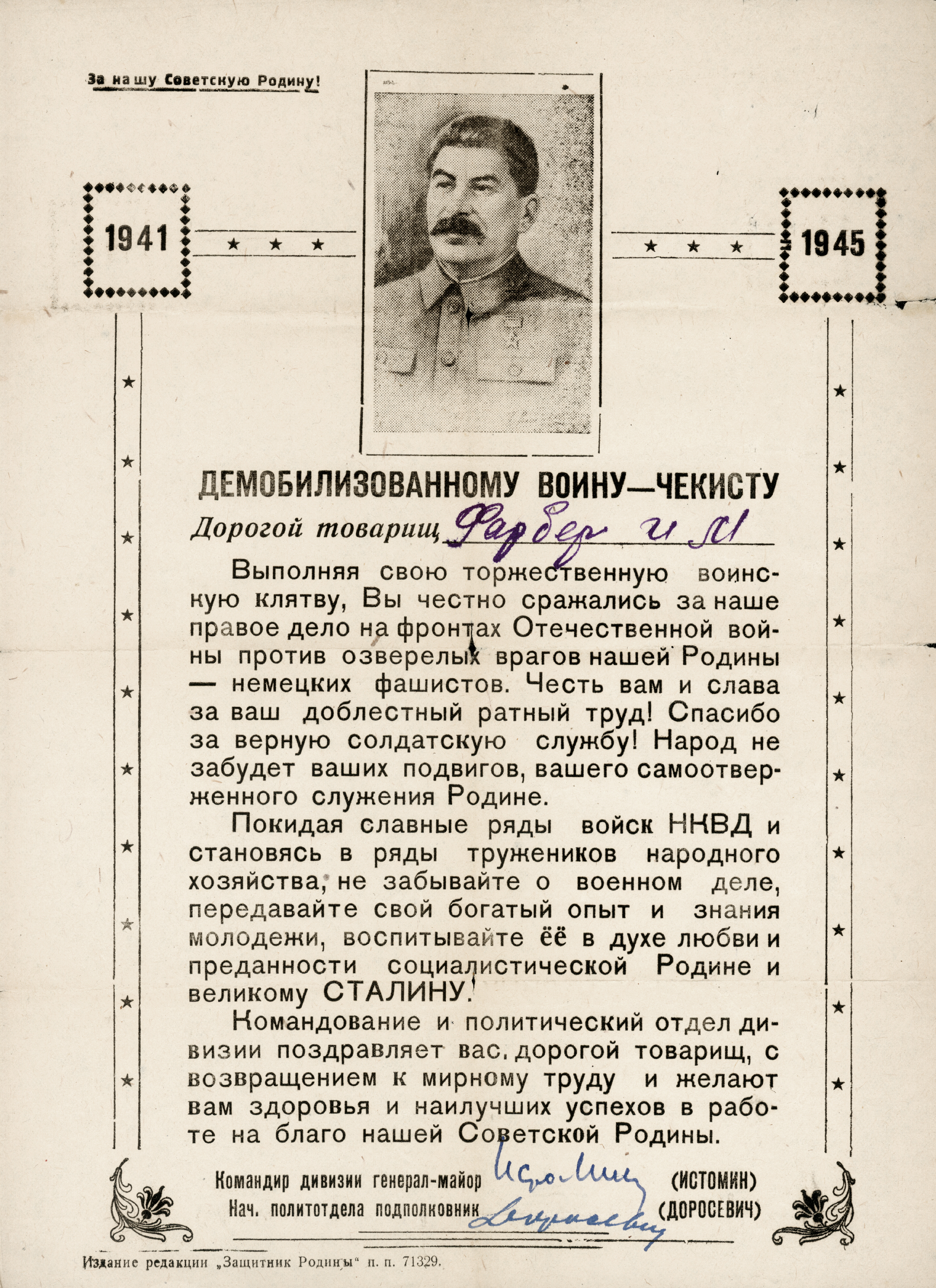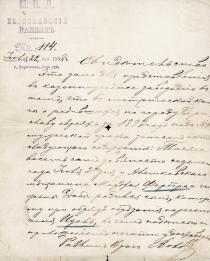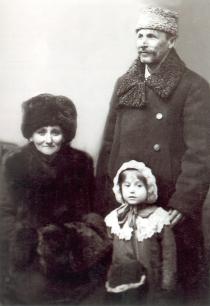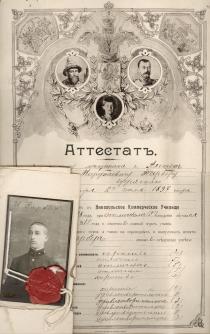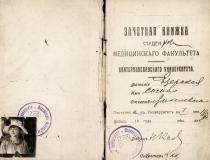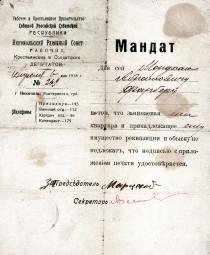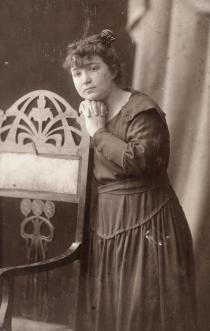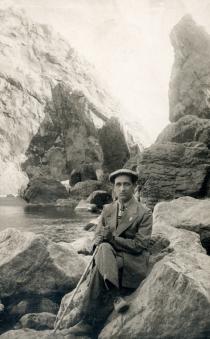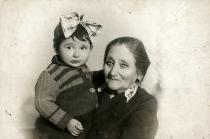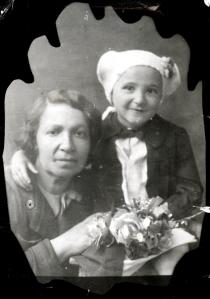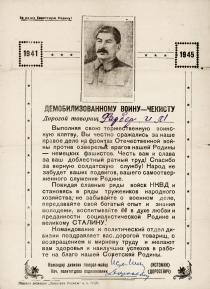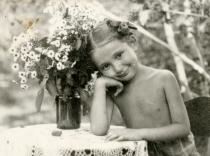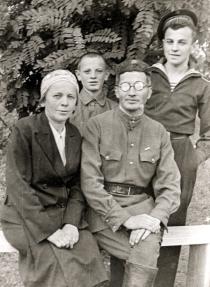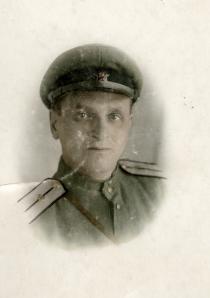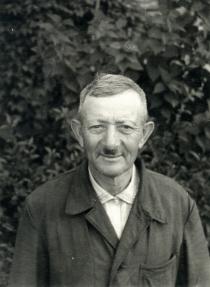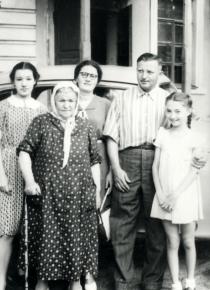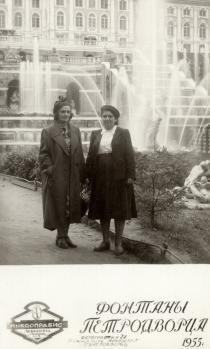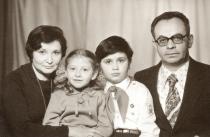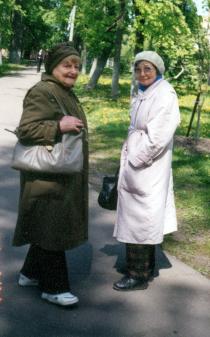This document was sent to my father after the war in 1945. It is Stalin's nominal leaflet to a soldier-chekist [member of the Emergency Commission]. He was demobilized from the NKVD forces. The leaflet expresses gratitude for his heroic deeds and congratulates him on his return from the war to peaceful labor in the national economy. It also expresses hope that he will hand over his rich experience and knowledge to the youth and raise it in the spirit of loyalty to the motherland and Comrade Stalin.
During the first days of the war my father went to sign up for the People's Volunteer Corps, as he was not subject to the draft, but mother, being a doctor, was already transferred to the state of barracks. She insisted that he stay with my grandmother and me. He continued to work in GIPH, but was soon also enlisted to the state of barracks. I stayed at home with my grandmother. In August 1941 my mother made an effort to send us into evacuation, but the Germans had bombed a train with evacuated people near Mga, Leningrad region, so she decided against the idea. Thus we all found ourselves in the siege. My mother periodically visited us. In October and November 1941 a boarding school for employees' children was arranged at my mothers' hospital, which was by that time re-organized into an evacuation hospital, and my grandmother was left alone.
We were evacuated in July 1942 across Ladoga Lake and found ourselves in Alma-Ata, where my mother worked as a doctor at the children's hospital. My father worked as an engineer at the Chemical and Metallurgical Institute. He was preparing for the defense of his doctor's thesis, but in January 1944 he was drafted to the army. Father was at the Leningrad frontline. He was an artillery-man, an ammunition carrier. In one of the battles a shell hit the ground and everybody, except for my father, perished.
My father was carried away from the battlefield, heavily wounded, and sent to the hospital in Leningrad. His left lung was shot and he had a lot of shell fragments in his arms and legs. It turned out, that the doctor in charge of his case was my mother's relative, Revekka Aronovna Finkel. She was a pulmonologist and held the rank of a major at the time. At the end of the war she was a colonel of medical service. She fixed my father up. After the treatment he continued his service in the army, but with NKVD forces. After the war he returned to Leningrad and to the GIPH and my mother returned to the Children's Hospital. Both worked at those places all their lives.
